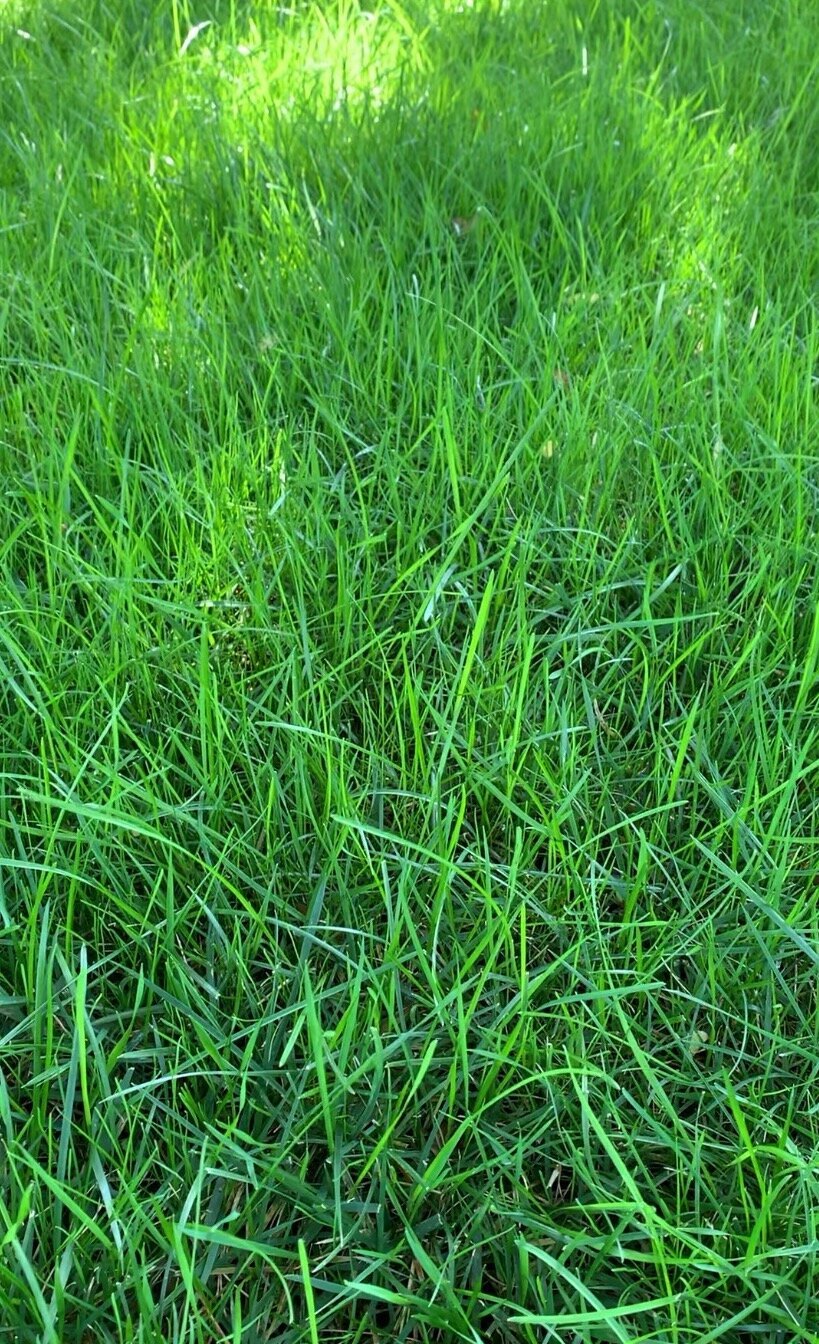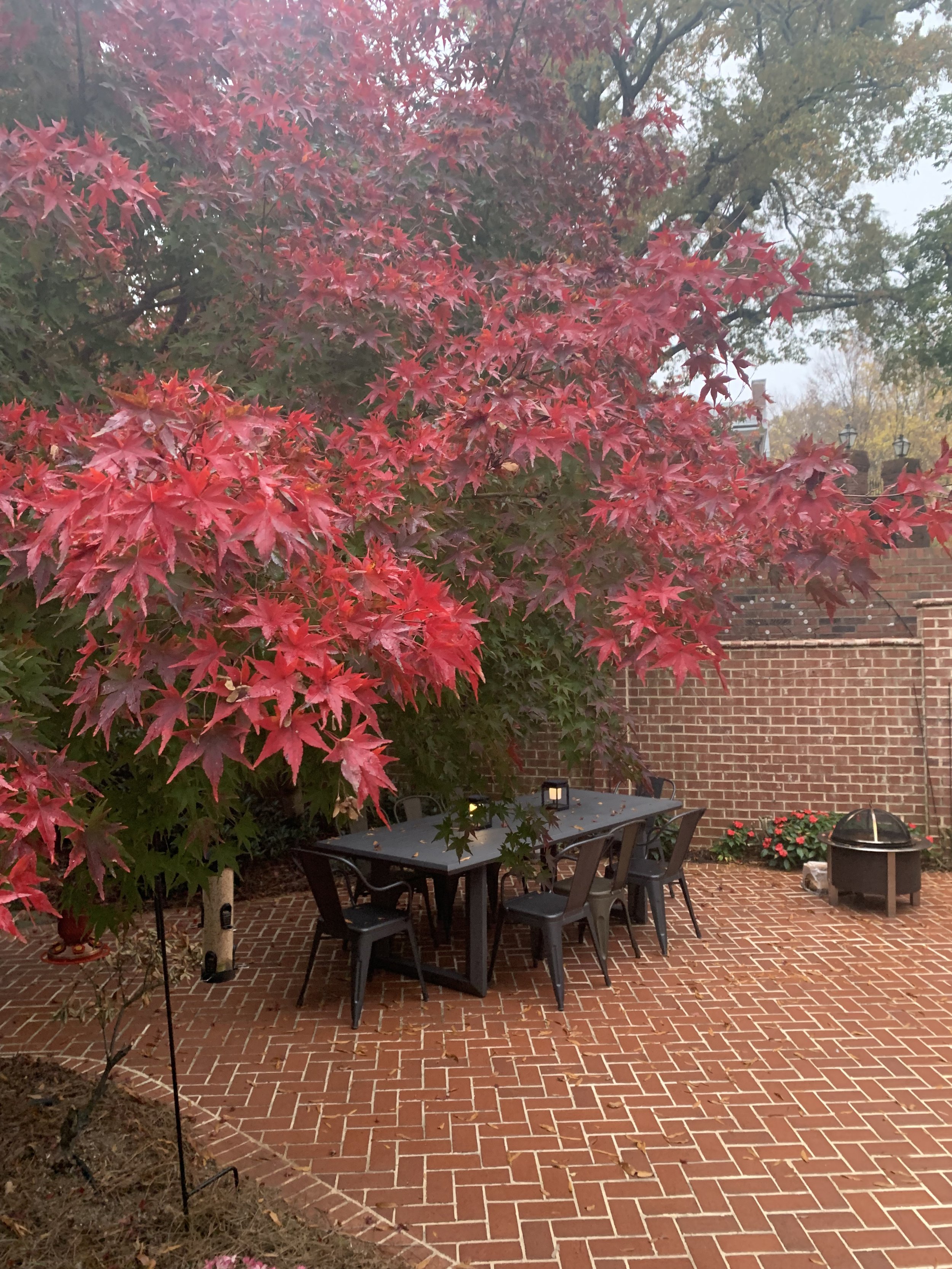
The Epic Summer Battle: Outdoor Fun vs The Mosquitoes. Coming Soon to Your Backyard!
April showers arrived in historic amounts.
Depending on where you live in the Oklahoma City area, you received somewhere between 10” to 15” of rainfall in the last 30 days.
That’s a good thing, right?
Yes, it is great to see the lakes, ponds and streams full. But there are downsides to periods of heavy rain.
One downside… The foundation of a healthy lawn, flower, shrub, and tree are healthy roots. Roots are the primary source of water, nutrients, and oxygen. Yes, oxygen. Plants breath through their root system. Plants can drown when all the air in soil is replaced by water.
Another downside... Nutsedge! Nutsedge thrives in moist, tight soils. It is common to find it growing in areas of poor drainage, around irrigation leaks, and in overwatered lawns. And right now, every lawn in the metro is overwatered.
But the peskiest downside of too much rainfall… Mosquitoes!
Mosquitoes spend three of their four stages of life dependent on moisture and what do we have an abundance of right now… Moisture!
We want your spring, summer and fall to be filled with outdoor enjoyment.
The key to more outdoor time is understanding the life of a mosquito, what you can do to win the battle, and how a mosquito control program can help you win the battle.
Hall | Stewart believes in an integrated pest management (IPM) approach to mosquito control. Success is equally the result of prevention and reduction.
The life of a mosquito –
The mosquito life cycle consists of four stages: egg, larva, pupa, and adult. The first three stages of their life are spent in water. Only adult mosquitoes live outside of water.
Egg Stage: Female mosquitoes lay eggs the surface of still water or a surface that is saturated. Any place where water is standing or is too wet is an invitation for a mosquito to lay eggs.
Larval Stage: The eggs hatch into larvae which live and feed on microorganisms in the water.
Pupa Stage: After the larval stage, the mosquito develops into a pupa . Pupae are comma-shaped and float on the water's surface, breathing through "trumpets."
Adult Stage: The adult mosquito emerges from the pupal case and rests on the water's surface while its wings dry and harden. Once ready, the male and female mosquitoes will then look for food and mates.
Adult females are the only mosquitoes that bite. They typically attack in the evening but occasionally are out during the day. Most afternoons you will find them resting in shrubs, trees and other shady areas.
After a female mosquito has obtained blood meal from a person or animal, they lay their eggs in water or a moist area where their eggs will receive sufficient moisture to hatch.
Typically, an adult mosquito doesn’t fly higher than 10-15’ and don’t venture more than a mile from where life began.
The entire life cycle from egg, to larva, to pupa, to adult, and back to an egg again only takes 4-5 weeks.
What you can do to win the battle –
Mosquito control is everyone’s responsibility when it comes to removing and eliminating larval breeding sites. All standing water is a desirable breeding ground for mosquitoes.
With mosquitoes spending three of their four stages of life dependent on standing water, anywhere water accumulates from bird baths, flowerpots, toys, poor draining gutters, a perfect playground for the insect.
The first step in mosquito control is to remove any standing water – pots, gutters, birdbaths, poor draining lawn areas, etc.
From March through November, any object containing 5–7-day old water is a potential playground for the pest. Even pet bowls can be a breeding ground for mosquitoes. Drain and refill pet bowls and bird baths every 3-5 days at the minimum.
KEY POINT: Routinely remove standing water.
Mosquitoes won’t lay eggs unless there is water.
Their eggs won’t hatch unless there is water.
The egg won’t become a larva unless there is water.
The larva won’t become pupa unless there is water.
Less standing water equals less mosquitoes.
Adult females are the only mosquitoes that bite. They typically attack in the evening, but occasionally are out during the day. Most afternoons you will find them resting in shrubs, trees and other shady areas. After they obtain blood meal from a person or animal they lay their eggs in water or a place where it will get wet. They prefer dark colored containers and shaded areas for egg laying.
What Hall | Stewart can do to help you win the battle –
Barrier treatments are the most effective and proven method for managing pests. A barrier can be made by treating all vegetation, shrubs and trees, from the ground up to a height of 10-15’.
Because adult mosquitoes often rest in the shade of plants, insecticides must be applied to both the top and bottom of plant leaves which is difficult to achieve with a traditional pump-up, handheld spray can.
Power backpack misters are the ideal equipment for barrier treatments as they force droplets into the vegetation and underneath leaves. Other common resting sites, such as under decks, gutters, and other moist shady areas are included in the treatment areas.
Hall | Stewart’s Mosquito Control Program uses two control methods:
An insecticide is used to provide an initial a quick kill and residual control of adult mosquitoes.
A larvicide is used to adversely effect the reproductive cycle of the mosquitoes by preventing larval development resulting in fewer adult mosquitoes.
Due to the short life cycle of mosquitoes, regularly scheduled monthly barrier treatments will provide a significant reduction in the number of insects.
Landscapes with an abundance of cool, shady and moisture areas benefit from the use of mosquito traps and mosquito buckets. If this describes your landscape setting, let’s visit how a more advanced process of mosquito control can help.
The battle is a team effort. You can win by reducing the breeding grounds for mosquitoes and by subscribing to the Hall | Stewart Mosquito Control Program.
We want you to have peace of mind when it comes to outdoor enjoyment this summer.
If you have not already subscribed to our mosquito control program, call (405)367-3873 or respond to this email.
Lorne Hall
Hall | Stewart Lawn + Landscape
(405)367-3873












